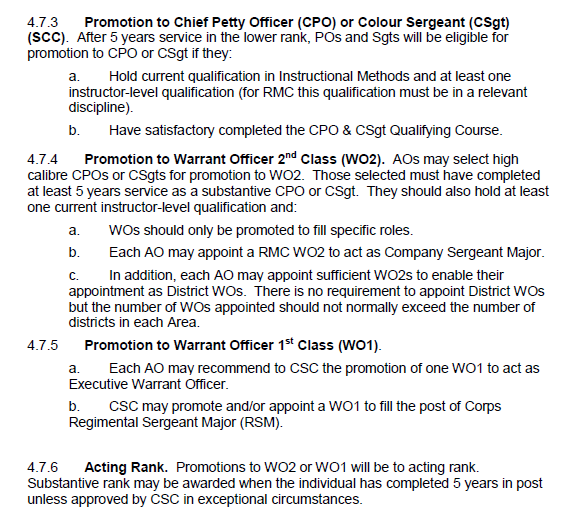This would have worked better if HQAC right back in 2000ish on when the process of binning of the old upper age started. We’ve had can’t promote them unless they tick boxes, can promote to FS unless they have an interview, the tosh of “be of value”, and the nonsense of high calibre and I’ve never, never understood what high calibre means. I’ve asked people and got vague non-descript from each, with not much commonality. The biggest fail was not having camps etc that are open to all 18+ and only 18+, where they are allowed to be as the law of the land decrees.
I don’t agree with the “adult” uniform (LAC etc) from 18, as that will morph into lots of people who never really grow up and still act like cadets when into their 30s and 40s, there are a number of these already. I think having CI as the only option would ensure the people who stay are doing so for the right reasons and not because of a desire / love (if that’s right word) of the uniform. I wouldn’t start ‘formal’ uniformed service “training” until 20. This gives them 2 years to do things on their terms as CIs and not as cadets. There should be no expectation of going into uniform. This has been a failing of the current system since its inception. I have told a few WSO to reel their necks in when trying to coerce my older cadets into uniform when discussions with me, have not mentioned them going into uniform.
HQAC won’t however address the elephant in the room of struggling to get people to actually volunteer and why some established CIs don’t fall over themselves to go into uniform.


 )
)